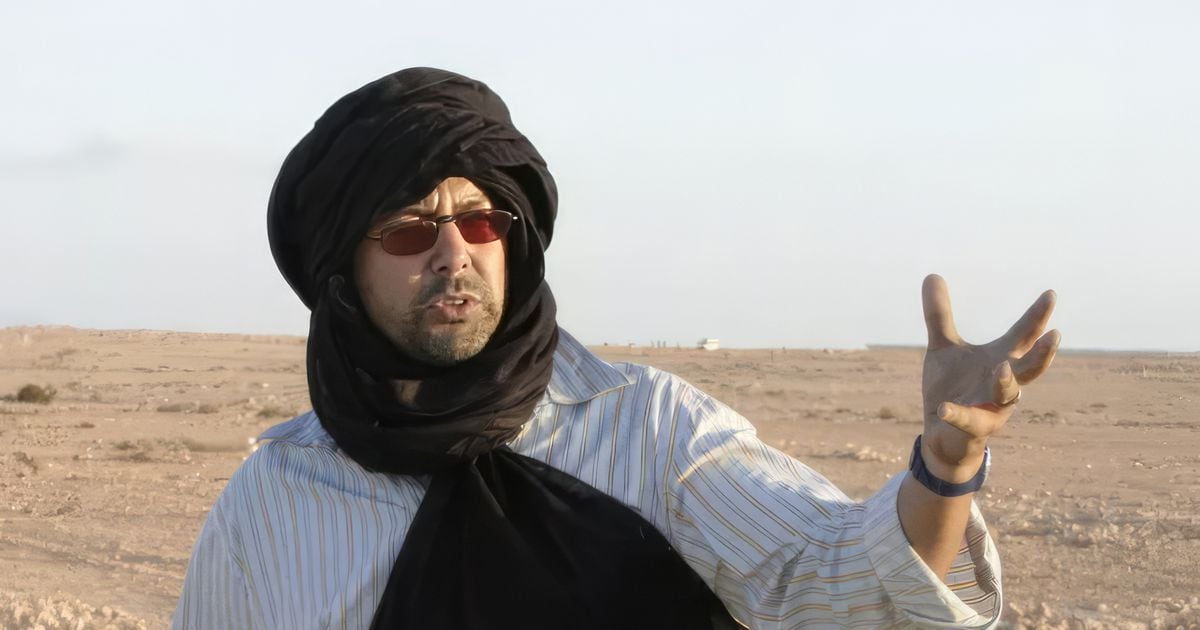Humanity, the daily newspaper of the French Communist Party, devoted an entire page to a Moroccan prisoner, a man named Ennaâma Asfari. It is on page 24 of the May 16 issue.
The man was sentenced to thirty years in prison for his participation in the Gdeim Izik riot, in which eleven policemen died, after a trial during which the rights of the defense were respected.
However, we read in the article from Humanitythat the man will be “arbitrarily detained since 2010”.
Very logical, Huma therefore, it should be written that there are 76,258 people “arbitrarily detained” in French prisons, since, according to this media, a real trial is worthless.
Unless the French CP and its propaganda organ believe that a trial in France is worth something, but worth nothing in Morocco? We are still on Tintin in the Congo?
That is the most unusual thing Huma claims that Asfari wasn’t even in Gdeim Izik – but (be careful) that the article is illustrated with a photo of a man with the following headline: “The last photo of Ennaâma Asfari taken during his participation in the Gdeim Izik uprising.” Check, check… Too good to be true, but it’s true: on the same page, the newspaper shows a guy in the middle of a riot AND he claims he wasn’t there… Ridiculous!
Another obvious contradiction: the man would be “subjected to isolation”, but a few lines later we learn that Humanity “I was able to talk to him on the phone.” We experienced more waterproof insulation…
But that is not all. Humanity undertakes in the rest of the essay to construct a heroic-revolutionary-romantic-intellectual image of his friend Asfari. Antonio Gramsci is finished, whose Prison notebooks had a certain influence in the past.
How is the image of an intellectual built? According to his readings. So the bird reads a lot – which also proves that his prison regime is not so strict. Do the opponents of the Polisario, among those kidnapped in Tindouf, have the freedom to order and receive any book in their prison? You will allow me to doubt that.
We learn, thanks Humawhich Asfari is currently devouring Being and Nothingnessof the late Jean-Paul Sartre.
As an aside: one day, in Le Touquet, André Glucksman confided this to me Being and Nothingness it served him three purposes during his career: a) to impress girls during his studies – he would walk the corridors of the Sorbonne with a book under his arm; b) stuck the too short leg of the wobbly desk that adorned his student room; c) check that the gardener did not cheat him by weighing his kilogram of potatoes – Sartre’s hefty book weighed exactly one kilogram.
As for reading… “You don’t think about it, mademoiselle,” Gluksmann told me that day; it was invincible.”
And yet, Glucksmann was preparing for the aggregation of philosophy. He later became one of the ‘new philosophers’ of the 70s and 80s. Sartre’s work was incomprehensible, invincible for him, but, how can I say… snappish for Asfari?
Come on then! Posture that all this. The narrative – it’s fashion – was helpfully provided by a journalist friend.
Only if…
What if it was a failed act – in Freud’s sense? What if, randomly quoting the title of a prestigious book, but far beyond his intellectual capacity, Ennaâma Asfari meant only its title?
Somewhere, perhaps unconsciously, he must wonder if he chose the right path.
Being and Nothingness. Yes… It’s about a choice between being Moroccan, that is, being someone, a citizen of a great country moving forward, or getting lost in the nothingness of the Polisario, crucified in the tents of nothingness in the desert and guarded by Corporal Chengrih.
And this choice, Mr. Asfari, this alternative, is not invincible.
